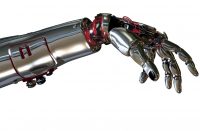There is an old adage that if something appears too good to be true, it probably is. Moreover, responsibility goes both ways. Anyone buying something below its obvious market value without checking the origin has to know there is a real probability of illegality or outright criminality being involved.
The common perception is that such shady deals are done by petty crooks working from dark alleyways. There is, however, a more sinister involvement in this type of crime by those other master crooks: the management and owners of big business.
There is nothing new about shady dealings within the world of lucrative commerce; and Ireland is no exception. During the Economic War of the 1930s a leading Unionist politician with property along the border reassigned B Specials and Revenue personnel so as to facilitate the importation of cattle from “Éire” into Britain via Northern Ireland, in violation of the then British embargo on Southern Irish produce.
Forward ninety years and there is evidence that big business on both sides of the border is still turning a blind eye to both sharp and frankly illegal activity. Frequently this involves subcontractors supplying services at levels below a viable or going rate. These practices, more prevalent in some industries than others, afford the captains of industry a measure of “credible denial.”
The construction industry has for years been a byword for shabby practice, with its brown envelopes, the use of substandard products, and unconscionable mistreatment of labour. Elsewhere, migrant workers are being forced to do lengthy periods of overtime in some factories at a flat (and at best minimum wage) rate. This cruelty is being enforced by unscrupulous gangmasters, using a range of threats, including physical intimidation. Managements, content to be the recipients of cheap labour, do not care to investigate.
Some of the most blatant uses of illegality, however, now occur in a business at present under the spotlight. The haulage industry is rife with malpractice, and sometimes lethally so. Central to this is continuous pressure to reduce freight costs, and often done at all costs. Illustrating this point is a recent example where a bona fide operator lost a long-standing contract when a competitor undercut him by an unsustainable 25 per cent.
The consequence is to cause some people, desperate for a wage, to evade statutory regulations by employing devious techniques to circumvent legislation guaranteeing rest and recuperation periods. As a result, drivers and the public are put at risk.
Still more dangerous, however, is an issue now being raised by conscientious lorry-drivers. They say that a number of unprincipled and suspect small transport operators have been submitting rock-bottom tenders for transcontinental subcontract work to larger companies. How, they ask, are these small-scale outfits able to do so, and why? In a nutshell, what else are they doing to subsidise their unprofitable runs?
The point to keep in mind is that those profiting most from this are the masters of capital in control of construction, retail, transport, and food production. Although not directly involved in lawbreaking, it is inconceivable that high-powered managements are unaware of the cost of labour and must bear responsibility for the fall-out.
It is important to recognise this not merely as a law-and-order issue. Undoubtedly there is a case for prosecuting individuals and groups of individuals; but the overall culprit is the capitalist system. Moreover, political and economic systems don’t function separately from society. The only way to definitively end the criminal abuse of working people is to replace capitalism, the economic system underpinning the exploitation of labour.
Nevertheless, there are steps that can and should be taken while pursuing the overall objective of a workers’ republic. In the first instance, it is important to see past the small fry and to expose large companies and their shareholders that are profiting by abusing labour. Secondly, progressive society has to make it more difficult to cut the price of labour by battling to have all sectors of the economy unionised.
Alongside these steps, it is crucial that the toxic and symbiotic relationship between right-wing elected (and seeking-to-be-elected) representatives and big business is exposed.
Taken in isolation, these measures will not provide a comprehensive solution to issues detrimentally affecting the working class. Nevertheless they offer an alternative to passively accepting the intolerable.






